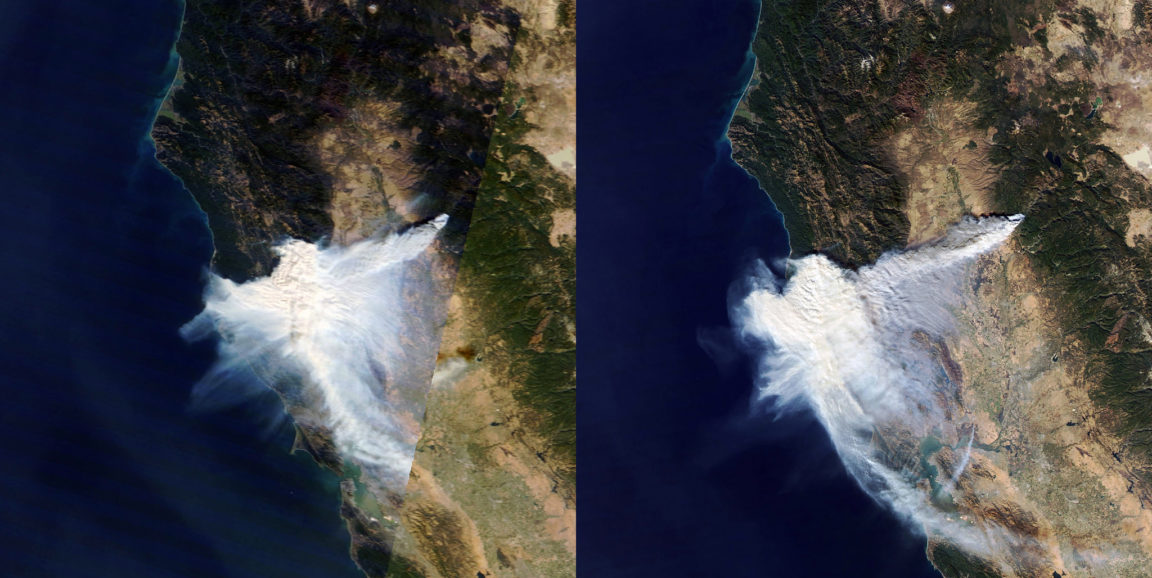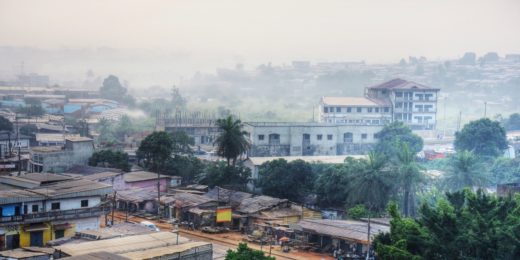Bad air quality is an issue for people in many regions of the world. In California's Bay Area, the sky, now perpetually hazy from smoke drifting from Northern California's Camp Fire, is a grim reminder of this.
People living in unhealthy air due to wildfire are advised to limit time and activities outside, keep windows and doors closed, use the air recirculate mode in cars and check air quality reports often. Some people may also benefit from the use of properly fitted masks rated as "N95" or "P100."
I recently corresponded with asthma and pollution specialist Mary Prunicki, MD, PhD, of the Sean N. Parker Center for Allergy and Asthma Research to learn more about exposure to unhealthy air due to wildfire smoke and what's known about how it affects the human body and mind.
I've heard some people say they that they are healthy, so the poor air doesn't harm them. Is it true that some people are unaffected by the smoky air?
While more research is needed to determine whether exposure to wildfire smoke has long-term clinical effects in healthy people, we do know from studying individuals' blood for 10 years in the Central Valley that exposure to air pollution, in general, causes immune changes in both healthy and asthmatic individuals.
Air pollution alters immune activity and changes the expression of genes involved in inflammation. We are currently trying to determine what level of exposure to wildfire smoke might also result in these immune changes.
Where are the particulates in unhealthy air deposited in your body after you take a breath?
Very small particles, such as PM2.5, are inhaled into the lungs, where they can then cross into the bloodstream. Once in the bloodstream, the particles can travel throughout the body and induce inflammation.
What short and/or long-term health effects can wildfire smoke cause?
We know that exposure to wildfire smoke increases the incidence of respiratory disorders, such as asthma attacks. Studies have shown an increase in ER visits and hospital admissions for asthma during wildfires, and that there is an increase in heart attacks after a few days exposure to wildfires (if exposure is elevated enough) in men and in older individuals (over or equal to 65 years).
Can exposure to wildfire smoke affect your mental health?
This is a great question, especially now with the Bay Area exposed to the wildfire smoke for an extended period of time. For individuals in close proximity to a wildfire, studies have shown that generalized anxiety may increase with certain events, such as the witnessing of homes being destroyed by the wildfire or having a pre-existing anxiety disorder, and firefighters may have an increased risk of developing PTSD. Whether the Camp Fire will have an impact on the mental health of those experiencing the smoke a distance away remains to be determined.
How well does the scientific and medical community understand how exposure to wildfire smoke can affect human health?
More research is needed to understand the long-term impacts of wildfire smoke exposure.
We have a better understanding of how other environmental pollutants, such as smoking and typical air pollution, impact health. The health effects from wildfire exposure needs further investigation and our center is actively trying to answer some those questions.
Photo by Stuart Rankin






